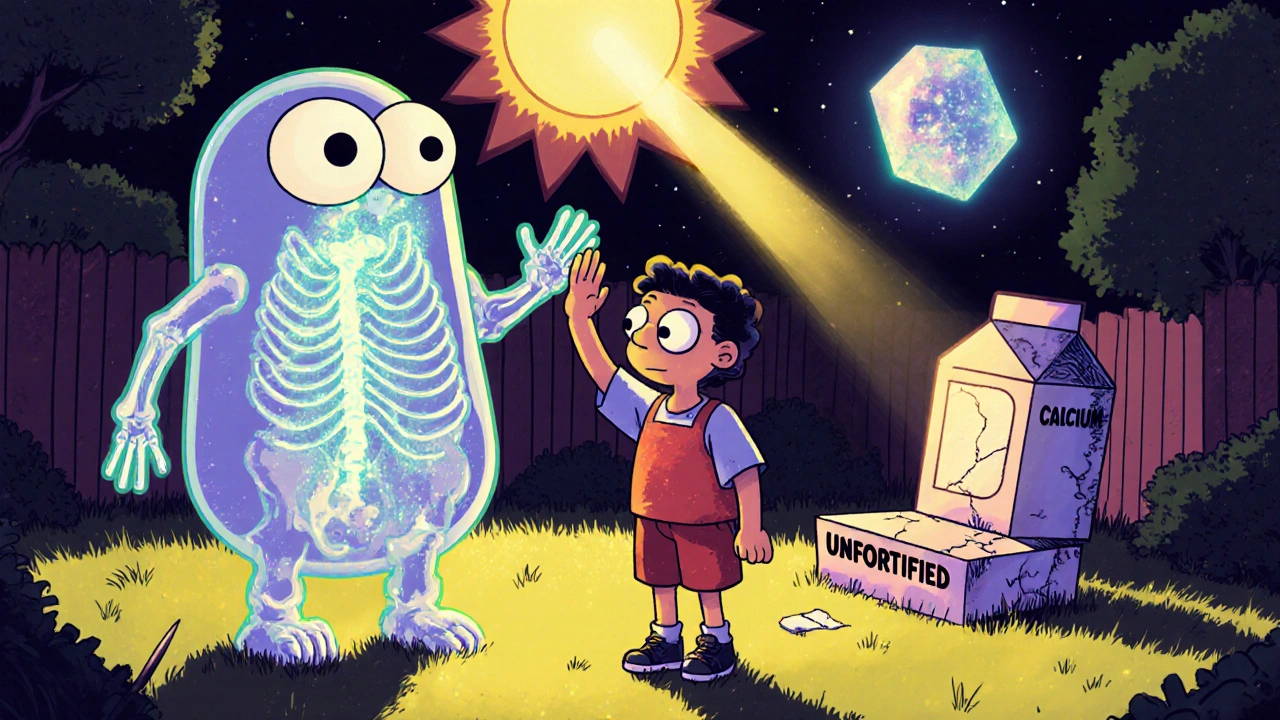Calcium: What It Does, Why You Need It, and How to Get It Right
When we talk about calcium, a mineral essential for building and maintaining strong bones and teeth, and also critical for muscle function, nerve signaling, and heart rhythm. Also known as Ca, it's the most abundant mineral in your body—over 99% of it lives in your skeleton, but the rest keeps your heart beating and your muscles contracting. If you're not getting enough, your body starts taking it from your bones to keep everything else running. That’s not a backup plan—it’s a slow breakdown.
Calcium doesn’t work alone. It needs vitamin D, a hormone-like nutrient that helps your gut absorb calcium from food and keeps it from being lost in urine to do its job. Without enough vitamin D, even a high-calcium diet won’t help your bones. And then there’s osteoporosis, a condition where bones become porous and fragile, often from years of calcium deficiency or poor absorption. It’s not just an older person’s problem—bone density peaks by age 30. What you do before then sets the stage for later.
Getting calcium from food is better than pills. Dairy like milk, yogurt, and cheese are the usual sources, but you don’t need them. Leafy greens like kale and bok choy, canned sardines with bones, fortified plant milks, and tofu made with calcium sulfate all deliver solid amounts. Coffee, salt, and too much soda? They can leach calcium out of your body. So can certain meds—like long-term proton pump inhibitors for heartburn. If you’re on those, talk to your doctor about your calcium levels.
Not everyone needs supplements. Most adults get close to enough from diet alone. But if you’re vegan, lactose intolerant, postmenopausal, or on steroids, you might be falling short. The trick isn’t just taking more—it’s making sure your body can use it. Magnesium, vitamin K2, and protein all help calcium stay in your bones instead of clogging your arteries. Too much calcium from supplements, though, can raise your risk of kidney stones and heart issues. More isn’t always better.
What you’ll find below isn’t a list of calcium supplements to buy. It’s a collection of real, practical guides on how calcium connects to your health—whether you’re worried about aging bones, managing meds that steal calcium, or just trying to keep your body running smoothly without popping pills. These posts cut through the noise and show you what actually matters.
How Calcium and Phosphorus Prevent Rickets in Children
Calcium and phosphorus, with vitamin D, are essential for preventing rickets in children. Learn how these minerals work together, which foods provide them, and simple steps to protect your child's bone health.
